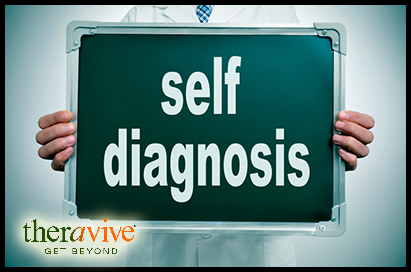 Internet versus Professional Help: What’s the Better Option?
Internet versus Professional Help: What’s the Better Option?
With the open access to a pool of information, self-diagnosis has become a common practice. The practice becomes more dangerous than ever when it comes to mental health. This is because most mental diseases and psychological disorders have similar symptoms, and in most cases self-assessments lead to misdiagnosis. According to Pillay (2010), there are fair chances that people with inadequate knowledge about mental health misjudge a mental disease with psychiatric syndrome. There is no denying the fact that many scholarly articles and research studies available online are authentic; however, it is difficult to follow online self-diagnosis guidelines and come to the right conclusion. Ani et al. (2008) in a research study concluded that people who preferred online aid over professional treatment for mental illness suffered from chronic psychological diseases. This article will guide readers through the dangers and stiff penalties associated with self-diagnosis:
Dangers of Online Help
According to Bazargan (2005), most mental diseases and psychological disorders are characterized by lethargy, lack of sleep, and drowsiness. There is no way that a person can come to a conclusion without going through a series of tests. However, most online forums don’t guide people in the right way. The study suggests that when treating patients it is important to communicate with them to understand their problems. In case of online help, people try to relate their medical conditions with the information available on the medical forums and end up making the wrong decisions.
While there are a number of dangers of self-assessment, two of them are:
1. Misdiagnosis
According to Dombeck (2014), the most subtle risk associated with self-help is wrong diagnosis. Unlike physical diseases, which can be distinguished by symptoms, it is difficult to track the root cause of a mental disease. Most people misdiagnose their illness with depression or other common psychological diseases. This not only delays the right treatment but wrong therapies and treatments also worsen the situation. Moreover, the study also emphasizes on the fact that communication plays an effective role in understanding the mental state of a patient. In case of self-diagnosis, a person does not get a chance to communicate or discusses his/her problem with anyone which further increases the chances of misdiagnosis. Dombeck (2014) suggests that a misdiagnosed mental/psychological illness can cause permanent damage to the brain, thus impacting the overall health of the patient.
2. Wrong Treatment
Wells-Moran (2014), in the same study quotes the fact that misdiagnosis is often followed by the wrong treatment. For example, if a person is suffering from ADD (Attention Deficit Disorder), he/she will show the same symptoms as a person suffering from normal depression. However, the treatment procedures for both of these diseases are drastically different from each other. Wrong treatment not only worsens the situation but it can also create new health issues. Moreover, most online forums recommend medication-based treatment for mental illness, which is not the complete cure. Mental diseases are controlled by therapies and counseling along with medicines.
 Why Professional Help?
Why Professional Help?
A number of people try to save a few bucks and time by consulting online forums for mental illness. There is no denying the fact that most psychological disorders and mental diseases require long-term treatment, but they can help people get rid of the root cause of the problem. Moreover, with professional help there are reduced risks of scams and fluff.
There are a number of benefits of consulting a professional for mental health issues. Some of them are:
1. Timely Diagnosis
According to the Press Association (2013), the biggest advantage of consulting a professional for medical help is timely diagnosis. A professional conducts a series of tests and counseling sessions. A physician also communicates with the patients directly and analyzes the stage of illness. This can help metal patients getting the right kind of treatment at the right time. Moreover, timely diagnosis also helps in detecting the problem before it’s too late.
2. Right Therapies
A number of people might not know, but therapy is the only solution to eradicate the root cause of mental illness. According to Pillay (2010), there are chances for a mental patient to relapse back to his/her pervious mental state and only anti-relapse therapies can help a patient completely recover from a medical disease.
This is the reason that self-diagnosis is strictly prohibited by professionals when it comes to mental illness. The right kind of medication, therapies, and counseling sessions can help a person avoid the dangers associated with self-diagnosis.
_________________________________________________________________________________________________________________________________
Reference
Ani C., Bazargan M., Bazargan-Hejazi S., Andersen RM., Hindman DW, Baker RS. (2008). Correlates of self-diagnosis of chronic medical and mental health conditions in under-served African American and Latino populations.
Bazargan M., Bazargan-Hejazi S., Baker RS. (2005). Who is playing doctor? -- The gap between self-perceived versus professionally diagnosed chronic conditions among the underserved minority.
Pillay S. (2012). The Dangers of Self Diagnosis. Debunking Myths of the Mind
Wells-Moran J., Dombeck M. (2014). Risks of Self Diagnosis. Seven Counties Services, Inc.
Christie Hunter is registered clinical counselor in British Columbia and co-founder of Theravive. She is a certified management accountant. She has a masters of arts in counseling psychology from Liberty University with specialty in marriage and family and a post-graduate specialty in trauma resolution. In 2007 she started Theravive with her husband in order to help make mental health care easily attainable and nonthreatening. She has a passion for gifted children and their education. You can reach Christie at 360-350-8627 or write her at christie - at - theravive.com.